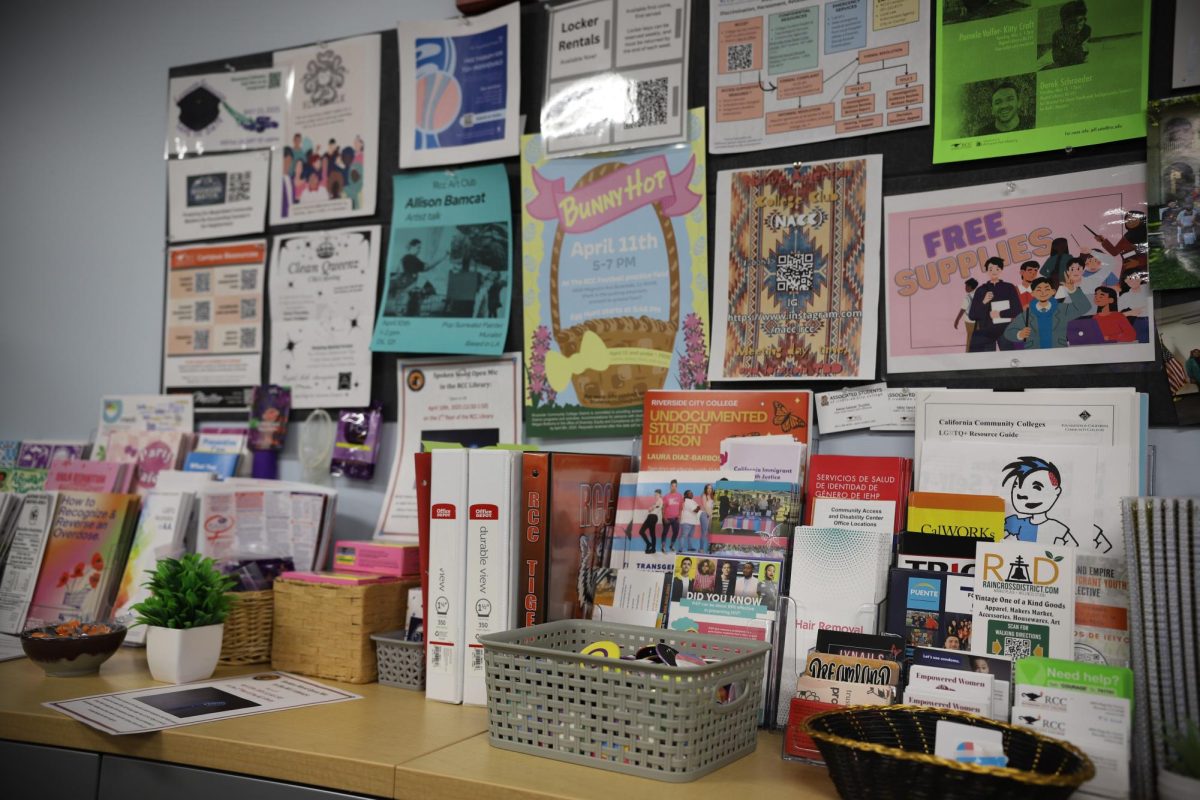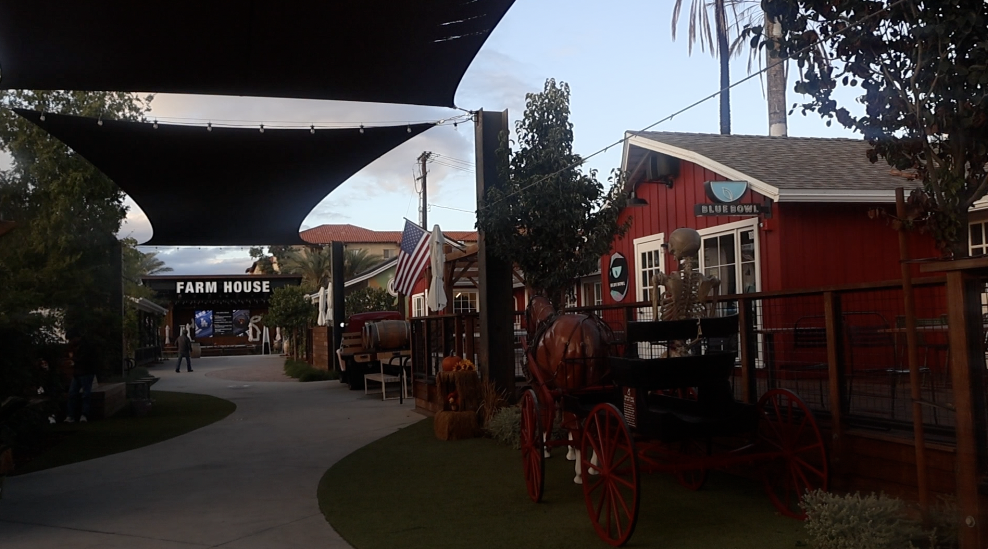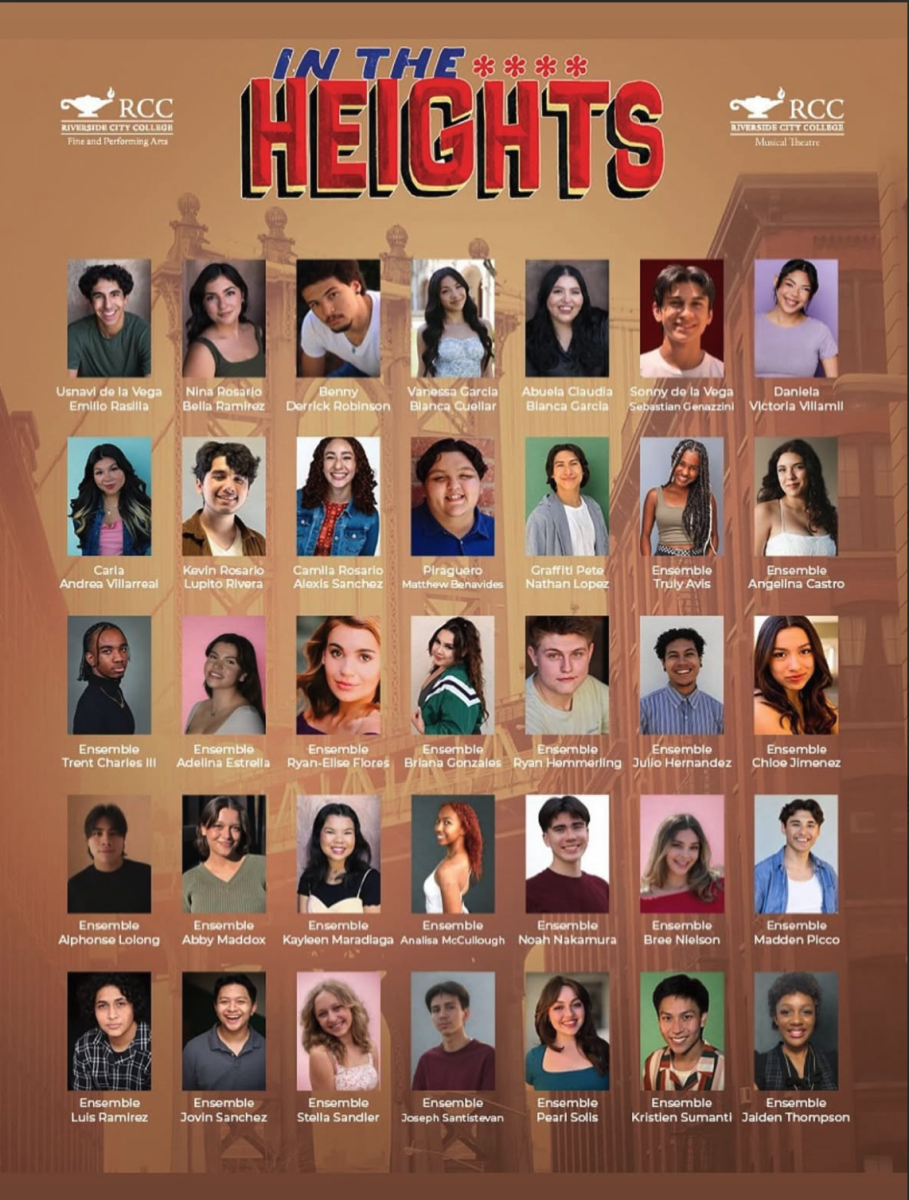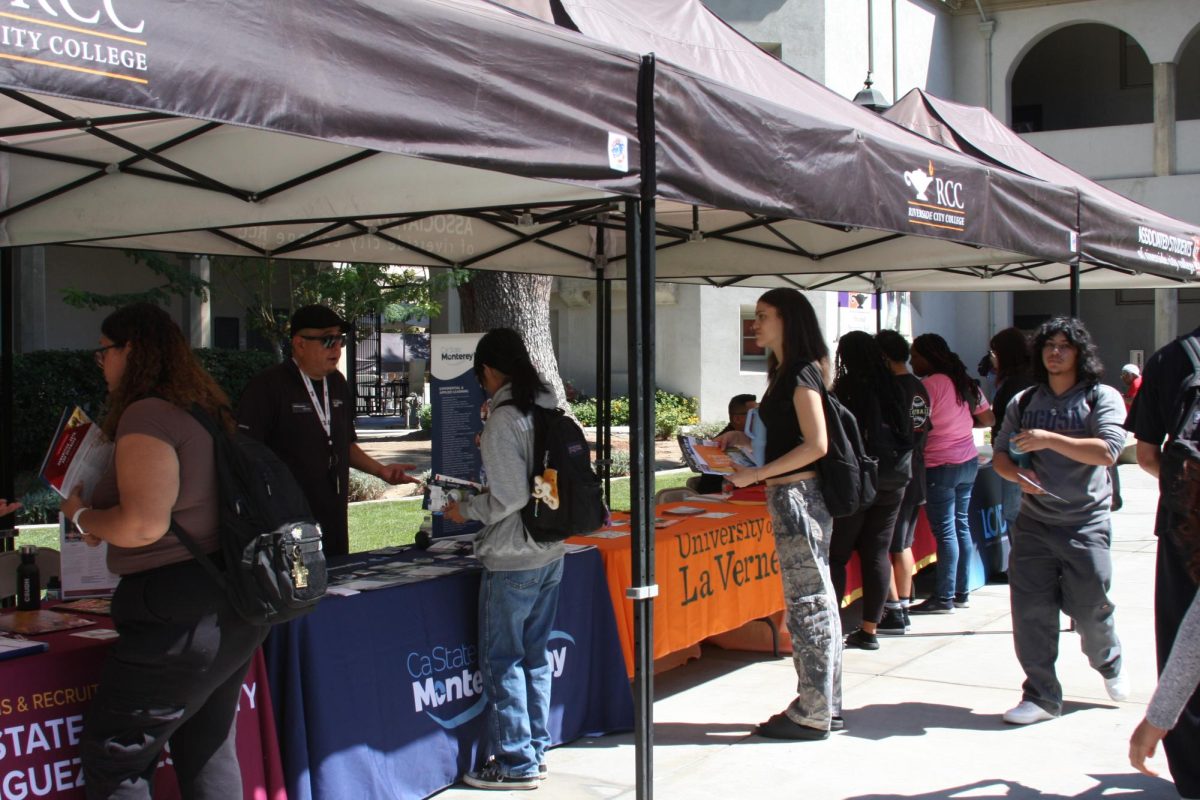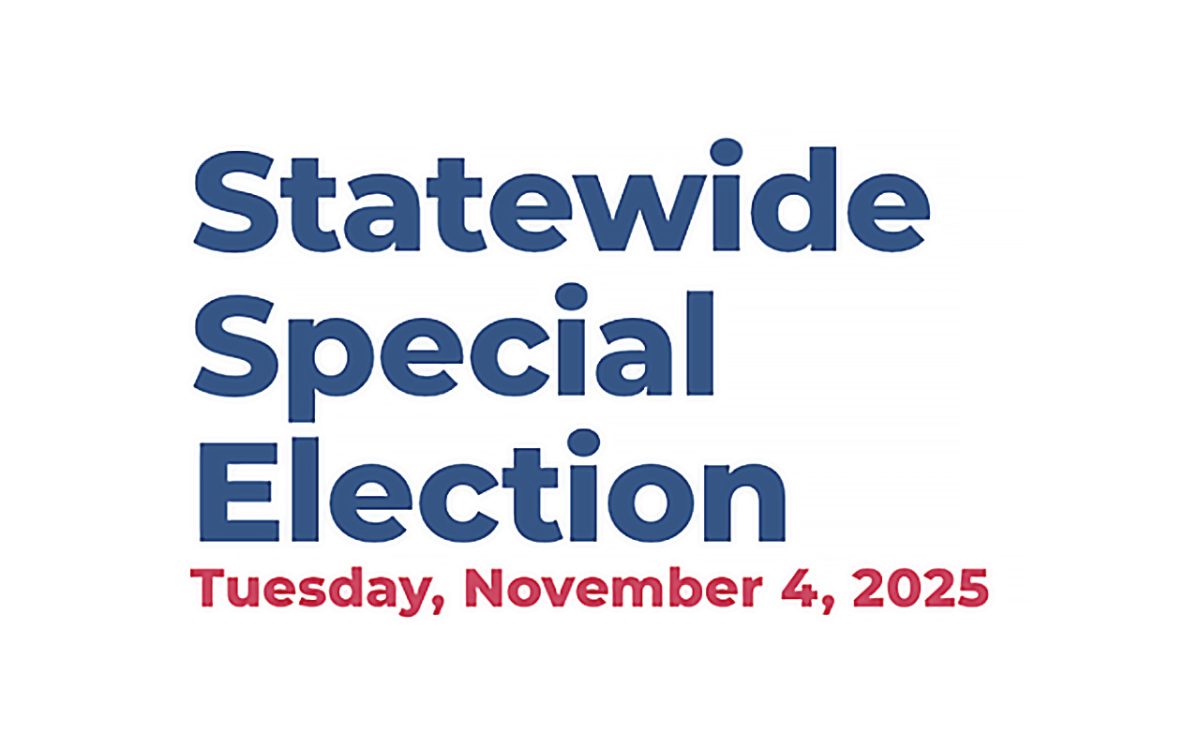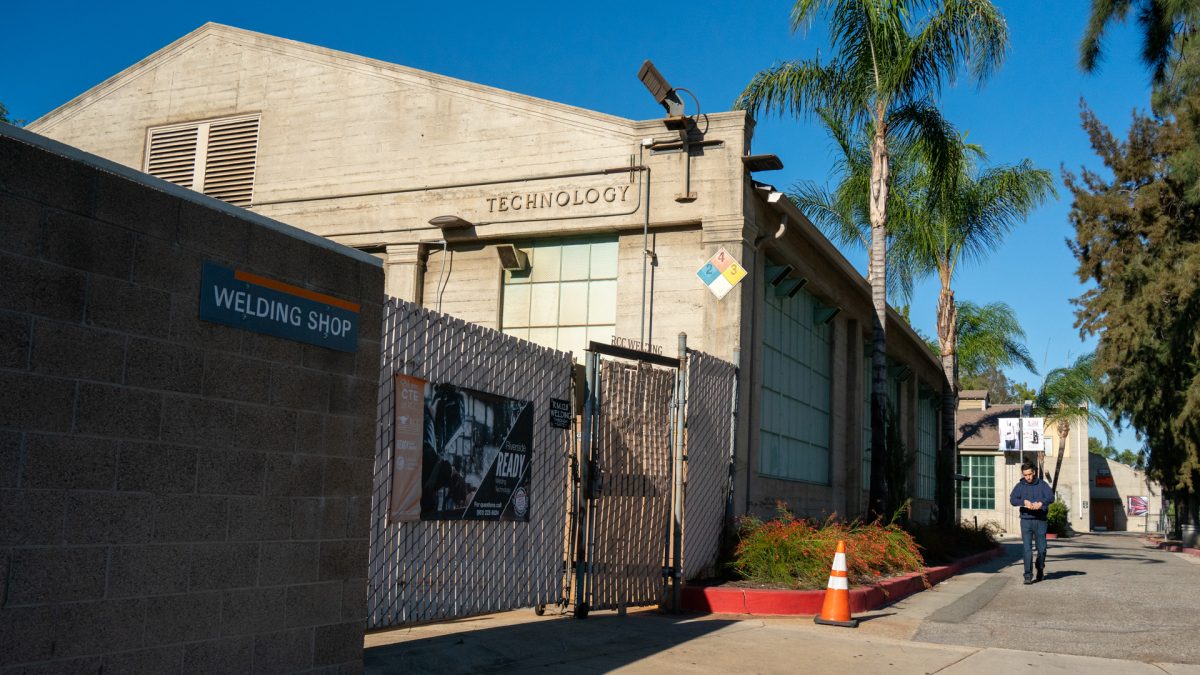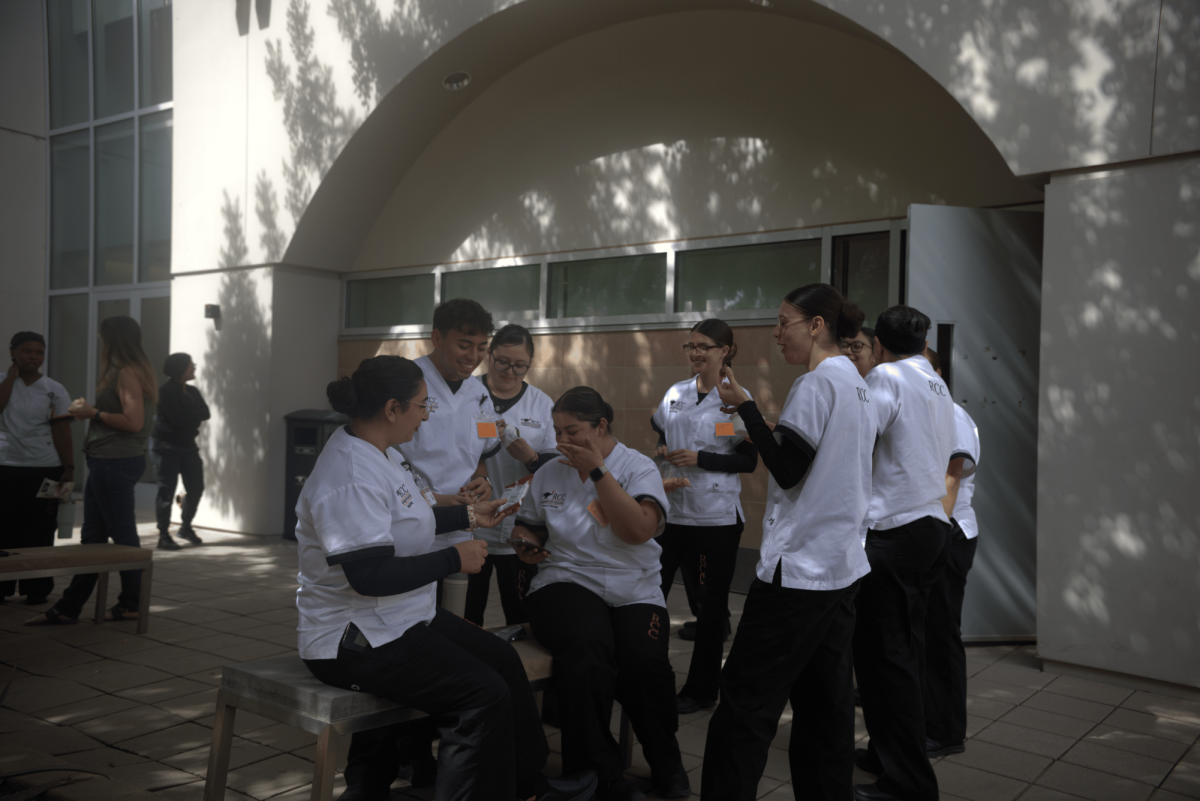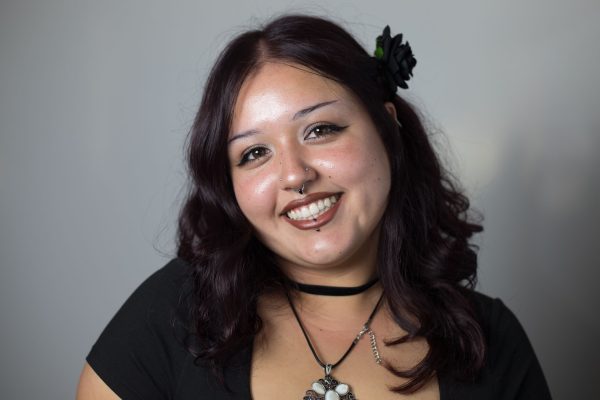The Rainbow Engagement Center provides a welcoming space for LGBTQ+ students and allies, but since the opening in Fall 2021, the center has struggled to maintain its increasing numbers with a lack of school support.
The luncheon on April 2 invited President Claire Oliveros to speak on behalf of the staffing issues at the REC. She started off the meeting with a communication contract agreement after facing backlash for the unresolved issues.
The students and staff at the center who attended the luncheon asked questions concerning the lack of full-time staff.
“I don’t think she was ready to talk to the gays,” said Kait Alcantara, a regular at the REC.
The Sexuality & Gender Acceptance club which started in the 1990s was the first LGBTQ+ inclusive club to start at RCC. This struggle for full-time staffing and equity within LGBTQ+ spaces have been fought since then.
Al Weyant, EOPS specialist, plays a role in the LGBTQ+ Association for Student Success and Equity mentor program by creating a supportive space for students to call their own. Eight paid peer mentors, volunteer faculty staff, classified professionals and administrators keep the engagement center open. Many of the volunteer staff often hold their office hours at the center to ensure the mandatory one staff member is present.
“It’s just not a model that works,” Weyant said.
Weyant explained that if they had a full-time dedicated staff it would allow the center to stay open instead of risking the impromptu closings due to volunteer faculty being unable to come in.
The center is open 20 hours a week. As of Spring 2024 there have been 632 visits by 376 students. This is the second most populated center on campus under the Language Humanities/Social and Behavioral Sciences Engagement Center. The numbers highlight the necessity to address growing student needs.
Oliveros acknowledged this by mentioning how she noticed how packed the room was during the first luncheon she hosted at the center.
Associated Students of Riverside City College Senator Gabriel Graves started a petition concerning the need for full-time staff at the REC after hearing from staff and students of the recurring issue.
Graves is an advocate for the students who feel overlooked as well as the voice for the students.
Since the petition was started there have been 2153 people who signed in support of the cause.
The resolution Graves proposed consists of hiring a full-time counselor/coordinator, an educational advisor and clerk. He also proposed that the district support the center with the student success framework and that RCC keep track of data from the center to enhance financial support.
You do not have to be a student representative to call attention to a concern on campus. RCC district policy states that any student can submit a complaint in the form of a petition along with a resolution on how to solve the issue.
“When we talk, they tend to listen,” Graves said, hopeful that the petition would spark change.
The students at the REC voiced that they do not feel that the higher ups have proven to listen or understand them.
“This is the only place where I know for a fact that someone is going to understand me,” said Reggie Coker, a regular at the center.
Brendon Lee, a peer mentor at the engagement center has first-hand experienced the issues they face when the room cannot stay open due to staffing such as the inability to attend their paid shifts.
“This is our safe space, plain and simple. If the room isn’t open, where else are people supposed to go?” he said.
The resources provided in MLK Room 304 open Monday-Friday consist of free food, water, clothes and medical resources such as sexual education supplies.
Jenn Quinn is a student facing housing issues and views the REC as a sanctuary, where they use these resources that are provided.
“Once I came here it was more open, there’s more resources, there was more inclusion here,” Quinn said.
Since the luncheon, Oliveros and her staff have made strides toward full-time staff in the upcoming fall semester. Although it is not full-time staff they are working on solidifying extended hours for the REC counselor, a faculty coordinator for 10 hours a week and a part-time classified professional staff member.
“Where we have not seen previous leadership teams invest in LGBTQ+ student support initiatives, this leadership team [is] making tangible strides forward,” Weyant said.

